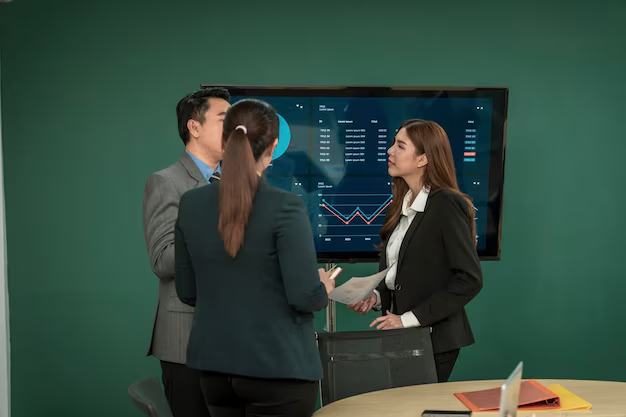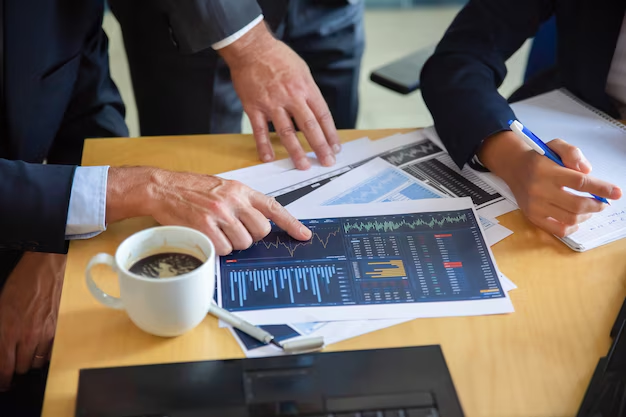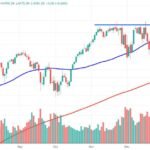
Futures trading is an exciting yet complex field that involves buying and selling contracts for commodities, stocks, or other financial assets at a predetermined price, with the goal of making a profit. It has become an essential tool for both professional traders and investors seeking to hedge against risks or capitalize on market fluctuations. However, as profitable as futures trading can be, it is also fraught with risks, and without the right knowledge, the chances of making significant losses are high. This is where enrolling in a futures trading course can make a substantial difference.
A futures trading course offers comprehensive education and hands-on training in the mechanics of futures markets, from basic concepts to advanced strategies. For anyone interested in futures trading—whether you are a beginner, intermediate trader, or an experienced investor looking to refine your skills—a futures trading course can help you develop the necessary knowledge, skills, and strategies to succeed in this complex marketplace.
In this article, we will explore the key benefits of enrolling in a futures trading course, the value it can provide, and how it can serve as an essential tool in your trading career.
Key Takeaways
- A futures trading course offers foundational knowledge, including how futures markets work and the mechanics of trading contracts.
- Risk management is critical, and a course will teach you how to manage leverage, position sizing, and the use of stop-loss orders.
- Practical experience through simulations and paper trading is an essential part of building confidence and refining your skills.
- Advanced strategies such as trend-following and swing trading can help you take your trading to the next level.
- Access to expert knowledge and mentorship provides guidance and helps you avoid common pitfalls.
- Building a network with other traders can offer valuable insights, tips, and collaboration opportunities.
- Emotional control is vital for success, and a futures trading course can help you develop the discipline necessary to overcome emotional biases.
Understanding the Fundamentals of Futures Markets

One of the primary benefits of taking a futures trading course is that it provides you with a solid understanding of the fundamentals of the futures markets. Whether you are new to trading or have some experience, having a deep understanding of how futures markets work is essential for making informed decisions.
In a futures trading course, you will learn about key concepts such as:
- Futures contracts: You will gain a clear understanding of what futures contracts are, how they work, and how they are used for hedging and speculation.
- Market participants: You’ll learn about the different participants in futures markets, including hedgers, speculators, and arbitrageurs, and their roles in shaping market prices.
- Leverage and margin: Futures trading often involves the use of leverage, meaning that you can control a larger position with a smaller amount of capital. Understanding margin requirements, how to manage leverage, and the associated risks is critical for successful trading.
With this foundational knowledge, you will feel more confident navigating the complexities of the futures markets and making decisions based on informed analysis.
Risk Management and Mitigation
Risk management is an essential component of any successful trading strategy, and futures trading is no exception. The highly leveraged nature of futures contracts means that small price movements can result in significant gains or losses. A futures trading course can teach you how to properly manage risk through various tools and techniques.
Some of the key risk management concepts covered in a futures trading course include:
- Stop-loss orders: Learn how to set stop-loss orders to limit potential losses on trades and protect your capital.
- Position sizing: Understand how to size your positions based on your risk tolerance and account size to avoid overexposure.
- Diversification: Discover the importance of diversifying your futures contracts across different asset classes to reduce risk.
- Hedging: Learn how to use futures contracts as a tool for hedging your existing investments and reducing the risk of adverse price movements.
By understanding and implementing these risk management techniques, you can make more calculated and informed decisions, minimizing the potential for large losses and protecting your overall portfolio.
Gaining Practical Experience through Simulations and Paper Trading
Many futures trading courses offer hands-on simulations and paper trading opportunities, which allow you to practice trading in a risk-free environment. This practical experience can help you understand how the futures markets function in real-time and build your confidence before committing actual capital.
Through simulations, you can:
- Apply theoretical knowledge: You can put what you’ve learned about market analysis, technical indicators, and trading strategies into practice.
- Test strategies: Paper trading allows you to experiment with different futures trading strategies without the risk of losing real money.
- Track performance: You can track your performance over time, analyze your trades, and make adjustments to improve your decision-making process.
Gaining practical experience in a risk-free environment allows you to learn from your mistakes and fine-tune your trading approach before transitioning to real-world trading.
Learning Advanced Trading Strategies

For more advanced traders, a futures trading course is an excellent way to learn and refine advanced trading strategies. These strategies are designed to take advantage of market inefficiencies and maximize profitability in various market conditions.
Some of the advanced strategies taught in futures trading courses include:
- Trend-following strategies: Learn how to identify and capitalize on market trends, whether they are bullish or bearish.
- Swing trading: Discover how to capitalize on short- to medium-term price swings in the market.
- Arbitrage trading: Understand how to exploit price discrepancies in different markets or between different futures contracts to generate risk-free profits.
- Algorithmic trading: Some courses may also cover automated trading strategies that use computer algorithms to execute trades based on pre-determined conditions.
These advanced strategies can help you stay competitive in the fast-paced world of futures trading and gain an edge over less experienced traders.
Access to Expert Knowledge and Mentorship
One of the most valuable benefits of enrolling in a futures trading course is gaining access to expert knowledge and mentorship from experienced traders and instructors. A good futures trading course is often led by industry professionals who have years of experience and a proven track record in the markets.
Through mentorship and interaction with experienced traders, you can:
- Learn from real-world examples: Instructors can share their experiences and provide insights into the challenges and opportunities they have faced in their careers.
- Receive feedback on your trades: If your course offers hands-on training, you can get feedback on your performance, identify mistakes, and learn how to improve your trading techniques.
- Get answers to your questions: You can ask questions, clarify concepts, and receive personalized advice to overcome obstacles and improve your trading skills.
This guidance and mentorship can significantly accelerate your learning process and help you avoid common mistakes that many novice traders make.
Building a Strong Trading Network
Futures trading courses often bring together individuals with a shared interest in the markets. By enrolling in a course, you gain the opportunity to network with other traders and build valuable relationships. Having a strong trading network can offer various benefits, including:
- Sharing ideas and strategies: You can exchange trading strategies, tips, and insights with fellow traders, helping each other improve.
- Staying informed: Networking with other traders can help you stay updated on the latest trends, market news, and trading opportunities.
- Collaboration and support: A supportive trading community can offer encouragement and advice during both the ups and downs of your trading journey.
Building a strong network can be an invaluable resource throughout your trading career.
Gaining Confidence and Overcoming Emotional Biases
Futures trading can be emotionally challenging, especially when dealing with market volatility and risk. Many traders struggle with emotional biases like fear, greed, and overconfidence, which can lead to poor decision-making.
A futures trading course can help you:
- Develop emotional discipline: Learn strategies to manage emotions while trading and stick to your trading plan.
- Set realistic expectations: Understand that losses are a part of trading and that success takes time and experience.
- Build confidence: By acquiring knowledge, refining your skills, and gaining practical experience, you’ll feel more confident in your ability to make sound trading decisions.
Emotional control and confidence are key to becoming a successful trader, and a futures trading course can help you develop both.
Defining Futures Contracts
Before going forward in explaining the benefits, it is necessary to understand the meaning of futures contracts.
- A futures contract is a contract that is a legally enforceable agreement between the two parties agreeing to buy or sell certain underlying assets at a fixed price on a given future date. The asset could be anything from a stock or a commodity to a currency or an index.
- Unlike spot markets, where transactions are settled immediately, futures contracts lock in a price for a later date, helping market participants manage their exposure to price fluctuations.
- In India, futures contracts are widely traded on the National Stock Exchange (NSE) and the Bombay Stock Exchange (BSE).
- Investors use these instruments to take positions on the future price movements of various assets, ranging from individual stocks to larger indices like the Nifty or Sensex.
- The key advantage lies in the ability to lock in prices and mitigate risks associated with market volatility. Platforms like the Share India platform also facilitate futures trading through its advanced trading systems, making it accessible to investors of all scales.
Key Benefits of Trading Futures Contracts

Risk Management and Hedging
One of the most significant benefits of futures contracts is their effectiveness in managing risk. Businesses and investors can hedge their exposure to market volatility by locking in prices. For example, a company that is concerned about fluctuating raw material prices can use futures contracts to secure a future price, thereby shielding itself from adverse market movements.
The meaning of futures contracts extends to managing risks for individual investors as well. By entering into a futures contract, they can protect their investments from short-term market fluctuations. This strategic tool ensures that potential losses in the underlying asset’s value are offset by potential growth in the futures position.
Leverage and Capital Efficiency
Futures contracts offer significant leverage, meaning that traders can control a large position with a relatively small initial investment, known as the margin. This makes futures trading capital-efficient, allowing investors to maximize their market exposure without having to put up the full value of the underlying asset.
This leverage, while increasing potential rewards, also requires careful risk management as losses can be magnified. Nevertheless, for seasoned traders, futures contracts provide a cost-effective way to participate in the market without tying up a large amount of capital. The defined futures contract aspect emphasizes this characteristic, highlighting its appeal for those looking to efficiently use their available funds. However, it is essential to approach leveraged positions cautiously, as the same leverage can lead to significant losses if market conditions move unfavorably.
Flexibility and Liquidity
One more advantage of why participants indulge in the trading of futures contracts is the ease of access. A trader can always go long or short in the market, depending on whether he is a bull or bear in the market. A trader can go long (buying futures contracts) if he or she predicts the bullish stretch of the market. On the other hand, if the outlook is for a bearish trend, the trader will go short (selling the futures contracts). This enables trading in both bull and bear markets which is a very advantageous and flexible feature not always found in other financial instruments.
In addition, the above-mentioned futures contracts in India are also very liquid. Naturally, high trading volumes on exchanges like the NSE and the BSE allow traders to enter or exclude positions without much struggle. Liquidity is very much correlated with the presence of buyers and sellers in the market, and this enhances the chances of looking at trades at specific prices. It also alleviates the risk of price manipulative practices assuring that futures contracts are traded at their fair value.
What is Futures Trading in Stock Market?
Futures trading is a type of financial contract where two parties agree to buy or sell an asset at a predetermined price on a specified future date. Unlike stocks, futures contracts do not require immediate ownership of the asset; instead, they represent an agreement to buy or sell the asset in the future. This allows traders to profit from price movements without needing to hold the underlying asset.
Difference Between Futures and Options
Futures and options are both types of derivative contracts, but they differ in their mechanics. In a futures contract, both parties are obligated to complete the trade at expiration. Options, however, provide the holder with the right but not the obligation to buy or sell the asset. Futures are generally riskier than options due to the binding obligation to fulfill the contract.
Overview of Futures Trading in India
In India, futures trading is regulated by the Securities and Exchange Board of India (SEBI). It is widely used for hedging, speculation, and risk management, especially in volatile markets. Futures contracts are available on stocks, indices, commodities, and currencies, making it a versatile tool for Indian investors.
How Futures Trading Works
Understanding the Mechanics of Futures Investing
Futures investing involves predicting the future price of an asset and entering into a contract to buy or sell it at a predetermined price. Traders use leverage in futures, meaning they can control a large position with a relatively small amount of capital. This leverage can lead to significant profits but also increases the risk of loss.
Future Option Trading: Combining Strategies
Future option trading involves using both futures and options together to create a strategy that balances risk and reward. For example, a trader might buy futures for profit potential while using options as a hedge to limit downside risk. This combination is popular among experienced traders.
Key Terms: Margin, Leverage, and Expiration
- Margin: Margin is the amount of money required to enter a futures position. In futures trading, traders are only required to deposit a fraction of the total contract value, allowing them to use leverage.
- Leverage: Leverage allows traders to control larger positions with less capital, potentially increasing returns but also amplifying losses.
- Expiration: Each futures contract has an expiration date, at which point it must be settled. Traders must either close the position before expiration or deliver the asset if the contract is held until maturity.
Types of Futures Contracts
Futures contracts allow traders to speculate on the price movements of various assets without directly owning them. Futures are available across different types of assets, each offering unique benefits and risks.
Equity Futures: Stocks For Futures Trading
Equity futures are contracts based on individual stocks, allowing traders to speculate on the future price of a particular stock. These contracts provide an opportunity to benefit from price movements without owning the stock. Equity futures are popular in the Indian market because they offer high liquidity and the potential for short-term gains.
Some of the best stock for futures trading in India are high-liquidity stocks with large trading volumes, such as:
Index Futures: Exploring Future Index Contracts
Index futures allow traders to speculate on the performance of a stock index rather than an individual stock. In India, popular indices for futures trading include the Nifty 50 and the Sensex. Index futures are highly favoured because they provide exposure to the overall market trend rather than the specific risk of a single company.
Future index contracts are especially useful for investors who want to hedge or diversify their portfolios. By trading index futures, investors can capture gains from broad market movements or protect their portfolios from downturns without selecting individual stocks.
Commodity and Currency Futures
Commodity and currency futures are based on assets like gold, oil, agricultural products, and foreign currencies.
- Commodity Futures: These involve tangible goods such as metals (e.g., gold, silver), energy (e.g., oil, natural gas), and agricultural products (e.g., wheat, coffee). Commodity futures are often used by businesses to hedge against price changes in essential inputs, while speculators trade them for profit from price fluctuations.
- Currency Futures: These contracts allow traders to speculate on or hedge against fluctuations in foreign exchange rates. Commonly traded currency pairs in the Indian market include USD/INR, EUR/INR, and GBP/INR. Currency futures are particularly useful for businesses and investors who need protection from currency risk in international transactions.
Commodity and currency futures provide traders with exposure to global markets and are often used to hedge against inflation or currency fluctuations. These futures add diversity to a portfolio and provide unique opportunities in volatile global markets.
Also Read : What Are The Most Effective Futures Trading Strategies?
Conclusion
Enrolling in a futures trading course is an excellent way to gain the knowledge, skills, and confidence needed to navigate the complexities of the futures markets. By providing a solid understanding of market fundamentals, risk management strategies, and advanced trading techniques, these courses can set you on the path to becoming a successful futures trader. Additionally, the practical experience gained through simulations, access to expert mentors, and the opportunity to network with other traders can help accelerate your learning and improve your trading performance.
FAQs
Is a futures trading course suitable for beginners?
- Yes, many futures trading courses are designed specifically for beginners and provide foundational knowledge that will help you understand the markets and start trading.
How long does it take to complete a futures trading course?
- The length of a futures trading course varies depending on the course provider and the depth of the material. Some courses may take a few weeks, while more comprehensive programs can last several months.
Do I need prior experience in trading to enroll in a futures trading course?
- No prior experience is necessary for many introductory courses. However, some advanced courses may require basic knowledge of trading concepts.
How much does a futures trading course cost?
- The cost of a futures trading course can range from a few hundred dollars for basic online courses to several thousand dollars for more in-depth or personalized programs.Will a futures trading course guarantee success in the markets?
- No course can guarantee success, but a futures trading course can provide you with the knowledge, tools, and strategies needed to improve your chances of success.
Can I learn futures trading without taking a course?
- While it’s possible to learn trading through self-study, a structured course provides a more organized and comprehensive learning experience, accelerating the process.
What is the best way to apply the knowledge learned in a futures trading course?
- The best way to apply what you’ve learned is by practicing through simulations, paper trading, or small real-money trades. Experience is key to mastering futures trading.




